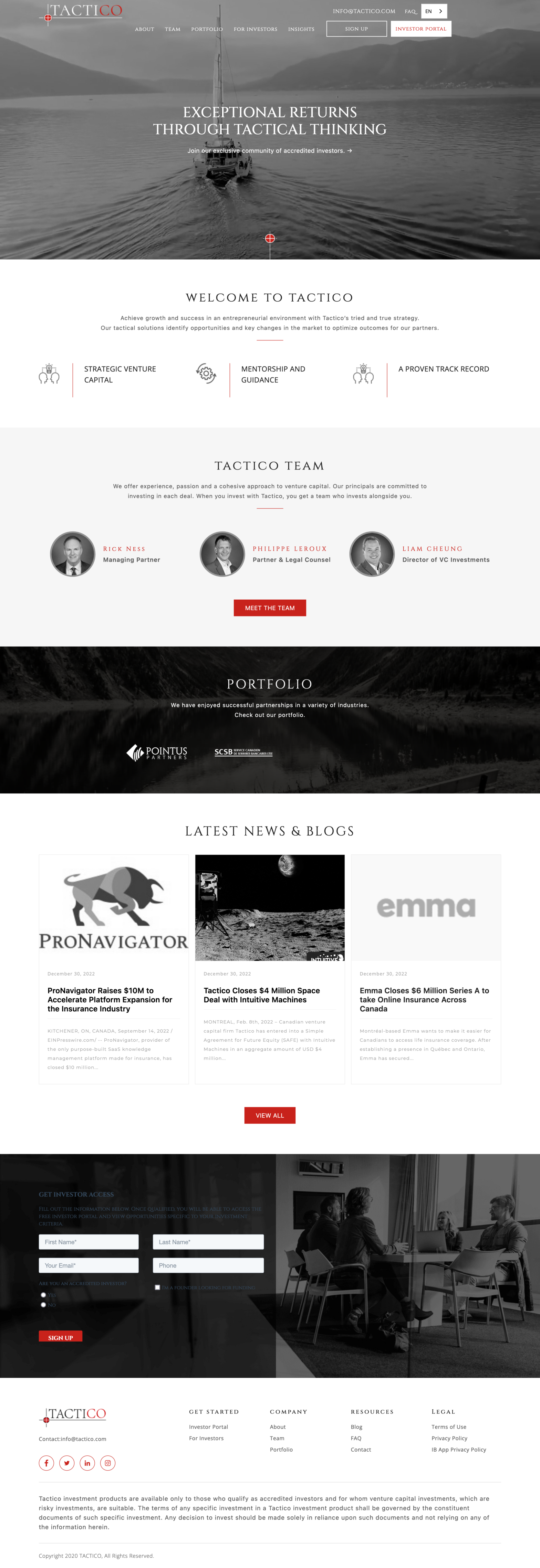Technologies We Use
Hire Node.js Developers for Custom Solutions
Our Node.js Developers' Expertise
Custom Node.js Web App Development
Are you looking to build a custom Node.js application tailored to your unique business needs? Hire Node.js developers from Capita Numbers who work with various Node.js frameworks, libraries, and tools to create secure, scalable, and reliable web applications that address any unique challenges your business may face.
API Development for Legacy Applications
Do you have a legacy application that you want to integrate with your other applications or third parties? Then hit us up. We’ll develop and deliver a secure and scalable API layer for it. We specialize in developing enterprise-grade REST APIs that are easy to consume, well documented, and reliable.
Real-time Applications
We integrate video call and voice chat functionality into your website using WebRTC APIs, Web Socket protocol, and Node.js. Our Node.js developers are skilled at creating lightweight, data-intensive, low processing applications.
Node js for Mobile & Web Apps
We help you power your Web or Mobile front end with a custom backend written in Node.js. Its secure, fast, and extensible. We can also create custom, secure and scalable APIs in Node.js for your front-end applications and mobile apps.
Node js Application Re-Engineering
Our Node.js experts ensure maximum customization by fully utilizing the current processes of the applications. We use cutting-edge re-engineering processes to simulate views, screens, and procedures.
Node js Application Modernization
Modernizing your present Node.js systems is our specialization. Our Node.js developers work on your legacy architecture in a way that significantly improves the Node.js without disrupting the frontend.
Framework Expertise
Our Node.js Framework Expertise
Fast and flexible MVC framework employed in high performance mobile and web application development.
Learn more
Employed in developing minimalistic UI mobile and web applications for Android, iOS, desktop, and web
Learn more
No framework, no problem. Our team of expert Node.js developers is well versed in scripting, provisioning, and working with custom code.
Learn more
It is highly flexible because of its compatibility with different front end— iOS or Android, Angular or React, or custom hardware.
Learn more
Utilized in developing real-time applications that are platform agnostic, device-agnostic, and browser agnostic.
Learn more
Web-based framework utilized in developing robust and high-performance web applications and APIs.
Learn more
Build a team
Not Just Node.js - You can Build a
Complete Team with Evolve 109


Here are some key responsibilities and tasks typically associated with the role of a project manager:
- Project Planning: Define project goals, objectives, and deliverables. Develop a project plan, including timelines, milestones, and resource allocation. Identify project risks and develop strategies to mitigate them.
- Team Management: Build and lead a project team. Assign tasks, set deadlines, and monitor progress. Foster collaboration and effective communication within the team.
- Budgeting and Cost Control: Develop and manage the project budget. Track expenses and ensure cost control measures are in place. Provide regular financial reports to stakeholders.
- Risk Management: Identify and assess project risks. Develop risk mitigation strategies and contingency plans. Regularly monitor and manage risks throughout the project lifecycle.
- Stakeholder Communication: Establish effective communication channels with project stakeholders. Provide regular updates on project progress, milestones, and potential issues. Address stakeholder concerns and manage expectations.
- Quality Management: Define project quality standards and ensure adherence to them. Develop a quality assurance plan and perform regular quality checks. Implement corrective actions to address any deviations from the quality standards.
- Change Management: Manage project scope and change requests. Evaluate change requests for feasibility and impact on the project. Communicate changes to the team and stakeholders, and adjust project plans accordingly.
- Documentation and Reporting: Maintain project documentation, including project plans, status reports, and meeting minutes. Prepare and present project reports to stakeholders, highlighting key achievements, risks, and issues.
- Project Evaluation: Conduct project post-mortems to evaluate project success and identify lessons learned. Document best practices and areas for improvement to enhance future project performance.
- Leadership and Decision Making: Provide strong leadership throughout the project. Make informed decisions, prioritize tasks, and resolve conflicts or issues that arise during the project.
- These are just some of the primary responsibilities of a project manager. The specific tasks and duties may vary depending on the industry, organization, and project complexity. Effective project management requires a combination of technical skills, leadership abilities, and excellent communication and organizational skills.
A business analyst is a professional who analyzes and evaluates an organization’s business processes, systems, and operations to identify opportunities for improvement and provide strategic recommendations. They bridge the gap between business objectives and technology solutions, ensuring that the needs of the business are properly understood and translated into effective solutions.
The primary role of a business analyst is to understand the business domain and gather requirements from stakeholders, including business users, managers, and IT teams. They use various techniques such as interviews, workshops, and observations to elicit requirements and understand the underlying business problems.
Once the requirements are gathered, the business analyst analyzes and documents them, ensuring clarity, completeness, and alignment with business objectives. They create functional specifications, use cases, process flow diagrams, and other artifacts to communicate the requirements to the development team and stakeholders.
Business analysts also play a crucial role in facilitating communication and collaboration between business stakeholders and the development team. They act as a liaison, translating technical concepts into understandable terms for non-technical stakeholders and ensuring that the business requirements are accurately interpreted and implemented by the IT team.
A UI (User Interface) designer is a professional responsible for creating visually appealing and user-friendly interfaces for software applications, websites, or other digital products. They focus on designing the visual elements that users interact with, aiming to create intuitive and engaging user experiences.
The primary role of a UI designer is to understand the needs and preferences of the target audience and translate them into visual designs. They collaborate with other members of the design team, such as UX (User Experience) designers and graphic designers, to ensure that the user interface aligns with the overall user experience strategy.
Frontend developers are professionals who specialize in designing and implementing the user interface (UI) and user experience (UX) of websites, web applications, and other digital products. They are responsible for translating design concepts into functional and interactive interfaces that users can interact with directly.
The primary role of a frontend developer is to build the client-side components of a website or web application using programming languages such as HTML, CSS, and JavaScript. They work closely with UI/UX designers and backend developers to ensure seamless integration of the frontend with the backend systems.
DevOps is a set of practices and cultural philosophies that combines software development (Dev) and IT operations (Ops) to enhance collaboration, efficiency, and quality throughout the software development lifecycle. It aims to break down silos between development and operations teams, enabling them to work together seamlessly and deliver software products more effectively.
Testing and Quality Assurance (QA) teams are responsible for ensuring the quality and reliability of software products or systems. They perform various testing activities throughout the software development lifecycle to identify defects, verify functionality, and validate that the software meets specified requirements and standards.
3 Easy steps
Hire Dedicated Node.js Developers
in 3 Easy Steps
01
Choose Node.js Developers
We have a team of 100+ Node.js developers. You can interview and shortlist candidates from our in-house tech pool and decide who joins your team.
02
Integrate Team into Projects
Our developers have now become a part of your team. They work dedicatedly for you, and you can communicate with them directly. You can start assigning them tasks and get daily updates along with a timesheet.
03
Scale On-demand
We also let you scale on-demand, grow your team during high-volume periods, and ramp down team size when needed. In short, we make it easy for you at every step like a true partner on whom you can rely.
why Hire
Why Hire Dedicated Node.js Developers
from Evolve 109
We Match Your Needs
By partnering with Capital Numbers, you’ll get access to our 700+ in-house developers and will be able to fill any role immediately.
Hassle-free production
Our HR specialists, office managers, and system administrators make sure your development team’s working conditions are perfect.
Work with Experts
We’ll help you hire .Node.js developers with a deep understanding of Express.js, TypeScript, Rest APIs, Databases, AWS & More.
Zero Overheads
Payroll, taxes, benefits, sick days, and vacations for your team – we’ve got you covered.
4.8/5 Rating on Clutch
Our clients highlight our ability to build great personal relationships with them, except for the excellent code quality.
ISO Information Security
Certified information security standards to ensure that your IP and investment are protected.
CASE STUDIES
The results speak for themselves
A case study is a detailed examination of a particular subject, event, person, or organization, conducted through in-depth research and analysis. It is a research method often used in social sciences, business, and other fields to gain a comprehensive understanding of complex phenomena within their real-life contexts.

























